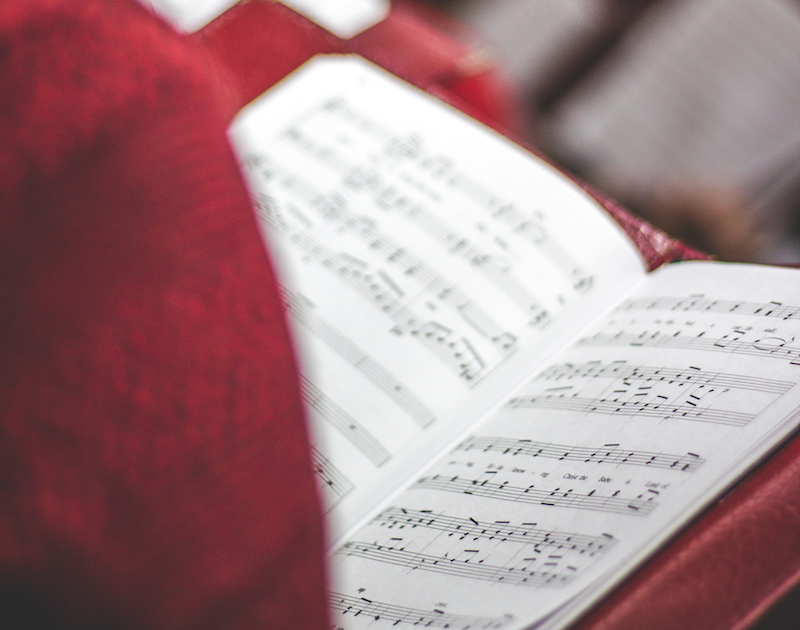Abigail Jones teaches music at a large public high school. Her students have recently been seen in the state and national honor choirs and on the Broadway stage. She has served as a music adjudicator, clinician, and presenter throughout her state. Abigail studied voice and piano and received a degree in choral music education. She and her husband are actively involved in their church, where she has served on the music team for nearly 15 years.
What do you do every day?
I direct five choirs, teach five classes, and oversee about 170 students. Since I’m often the musical director of our school’s theater productions, I’m also often in after-school rehearsals. I also get our choirs ready to perform in festivals and competitions and help our students with their college auditions.
Did you always know you wanted to be a music teacher?
From a young age, I knew I wanted to combine music and education. It was a great way to mix my musical gifts and abilities with my extroverted personality.
I’ve discovered along the way that I also love being a music teacher, since it allows me to make long-term investments in my students. I don’t work with them in one class for one semester, but invest in them throughout their high school careers in every season—holidays, summers, and after-school. In this way, I find my work to be meaningful.
What types of music do you like to feature?
I want to introduce my students to high-quality art, which often means featuring sacred music. Handel’s Messiah, for example, is something we perform regularly, because it’s so rich and compelling. Since I believe musicians perform better when they understand what they’re singing, especially if they’re singing something as deeply meaningful as the Messiah, I often talk about the lyrics. When I explain “He Shall Feed His Flock” or “Comfort Ye My People” to my students—many of whom are poor, live in broken homes, and see awful tragedies every day—they become curious about the Messiah himself.
Are there other types of music that open up these conversations, too?
We once did a production of Les Miserables. The young boy who played Valjean is basically an orphan—his family is addicted to drugs and neglects him. Another young boy, who often stays on his friends’ couches, played the bishop. When we got to the scene with the candlestick, we talked about what it means to be a martyr and die for your faith. After I explained how Jesus was killed for the sins of the world, I talked about the play’s allusions. “You, the bishop, are telling Valjean that he has to live a new life,” I said to the young boys. “You’re saying that it has already been done, that God has paid the price.” The boys were intrigued, and I pray it goes somewhere.
Have you ever been challenged for being so open about Christianity?
In all my years of teaching music at my school, only one person has called the front office to complain: “How dare they do this religious music!” But we’re performing the best of Western choral music, and I’m passionate that my students understand what’s behind it.
How do you see your work as a way to love your neighbor?
The high school is the hub of our community. Most of my students will never pursue further education after graduation. A school musical, then, may be one of the biggest and most successful events they’ll ever do. It’s a joy for me to be a part of this with them, loving them in ways that encourage their gifts and talents. I want my students to contribute constructively, not destructively, to our community. I want them to be creative and additive. My hope is that, through my work, I can somehow contribute to the shalom and healing of our community.
Editors’ note: TGCvocations is a weekly column that asks practitioners how they integrate their faith and their work. Interviews are condensed and edited. Due to the nature of her work in the public high school system, “Abigail Jones” is a pseudonym.
Is there enough evidence for us to believe the Gospels?
 In an age of faith deconstruction and skepticism about the Bible’s authority, it’s common to hear claims that the Gospels are unreliable propaganda. And if the Gospels are shown to be historically unreliable, the whole foundation of Christianity begins to crumble.
In an age of faith deconstruction and skepticism about the Bible’s authority, it’s common to hear claims that the Gospels are unreliable propaganda. And if the Gospels are shown to be historically unreliable, the whole foundation of Christianity begins to crumble.



































